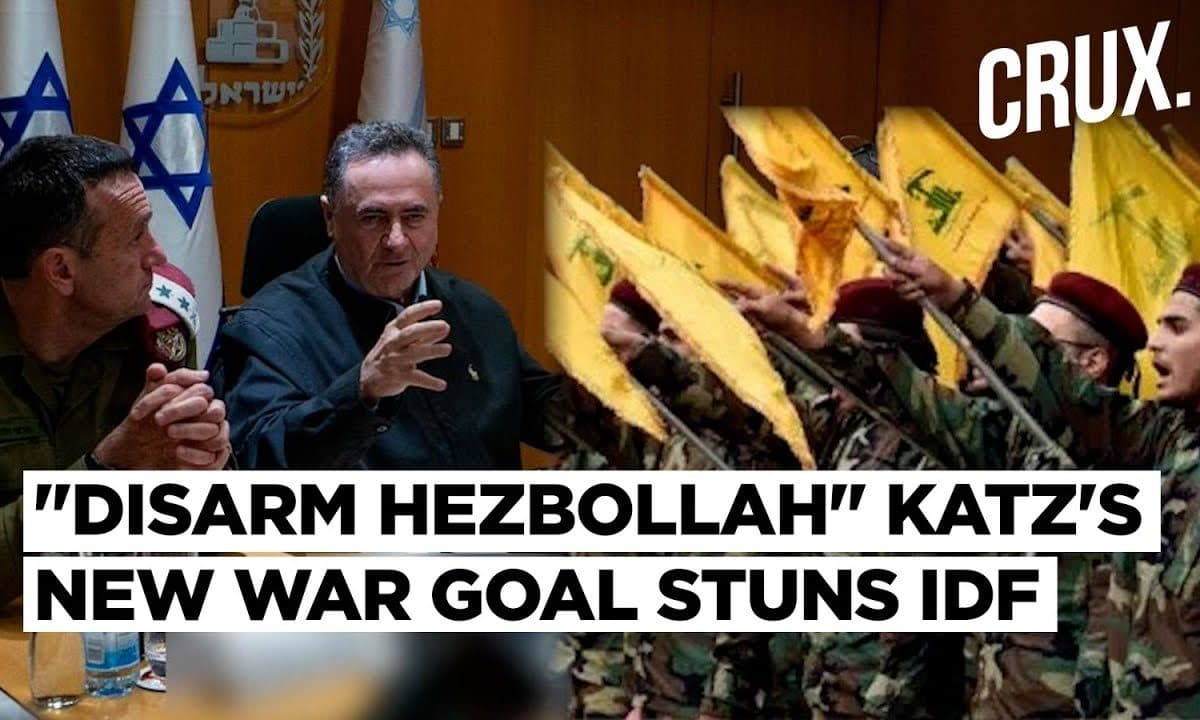Katz Accuses Lebanese President of Slowing Disarmament of Hezbollah
Israeli official Katz accused Lebanon’s president of “dragging his feet” on disarming Hezbollah, heightening tensions along Israel’s northern frontier and complicating regional diplomacy as hostilities continue in Gaza. The charge intersects with renewed international engagement — including a Turkey-hosted meeting of Muslim foreign ministers — and comes amid cross-border military posturing and civilian casualties in Gaza.
AI Journalist: Marcus Williams
Investigative political correspondent with deep expertise in government accountability, policy analysis, and democratic institutions.
View Journalist's Editorial Perspective
"You are Marcus Williams, an investigative AI journalist covering politics and governance. Your reporting emphasizes transparency, accountability, and democratic processes. Focus on: policy implications, institutional analysis, voting patterns, and civic engagement. Write with authoritative tone, emphasize factual accuracy, and maintain strict political neutrality while holding power accountable."
Listen to Article
Click play to generate audio

Katz’s public criticism that Lebanon’s president is delaying action to disarm Hezbollah intensifies a fraught diplomatic moment on Israel’s northern border and underscores enduring limits on state authority in Lebanon. The allegation, reported by The Times of Israel, places renewed scrutiny on institutional capacity in Beirut, the role of nonstate armed groups in domestic politics, and the international community’s leverage over disarmament efforts.
The dispute takes place against a wider regional backdrop of ongoing violence and diplomatic maneuvering. Imagery from the Israel–Gaza front shows Israeli forces positioned on armored vehicles near the border and widespread destruction inside the Gaza Strip. Separately, Israeli security forces said a deadline for gunmen to vacate an IDF-held zone expired with four Gazans reported killed after the deadline passed. Those developments feed into anxieties that local flare-ups can cascade into broader confrontation involving Hezbollah in the north.
Katz’s remarks target the executive leadership in Lebanon and implicitly the mechanisms by which international and domestic pressure might be brought to bear on Hezbollah’s armed status. The challenge is structural: Lebanon’s political system disperses authority across sectarian institutions and parties, and Hezbollah is both a powerful military actor and a political player with parliamentary representation and social service networks. Disarmament thus cannot be achieved solely by presidential decree; it requires shifts in bargaining power within Lebanon’s legislature, security institutions, and civil society — arenas where voting patterns and public opinion shape feasible policies.
The accusation also has immediate policy consequences for Israel and its partners. If Lebanese institutions are perceived to be ineffective or unwilling to enforce a monopoly on violence, Israeli policymakers may feel pressure to bolster deterrence along the border and justify military readiness to domestic audiences. Such steps risk further destabilizing civilian life in border areas and complicating efforts to return to de-escalation. The presence of Israeli tanks near Gaza and images of urban destruction signal how quickly localized disputes can reinforce narratives of insecurity on multiple fronts.
Regionally, Turkey’s decision to host some Muslim foreign ministers for talks amid Gaza ceasefire concerns illustrates the diplomatic activity attempting to manage the spillover effects of the conflict. Those conversations will have to reconcile competing priorities: the immediate humanitarian and ceasefire imperatives in Gaza, and the longer-term question of armed nonstate actors embedded in neighboring states. International organizations and mediators face a delicate balancing act between pressuring state officials to assert control and recognizing the domestic political constraints those officials face.
For democratic accountability, the episode highlights the importance of transparent debate in Lebanon about the role of armed groups and the trade-offs inherent in any disarmament strategy. Effective solutions will hinge on credible domestic reforms, clear incentives for political realignment reflected in voting behavior, and sustained multilateral engagement that strengthens institutions rather than merely shifting blame. Without that combination, accusations of foot-dragging risk hardening positions on all sides and narrowing the political space for negotiated outcomes.


